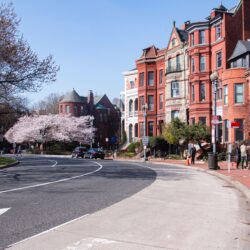Even as DC’s economy grows, it is marked by stark racial inequalities in income, wealth, and poverty. Affording the basics, such as rent, food, and utilities is a daily challenge for many DC residents. This is disproportionately true for Black residents, one in five of whom live in poverty. Income support programs help people make ends meet and boost long-term education and health outcomes for children. By helping residents pay their bills, care for their children and possibly save for a rainy day, DC can help create more stability and a future of shared abundance.
Featured Publications & Resources
Blog
DC’s Extreme Wealth Concentration Exacerbates Racial Inequality, Limits Economic Opportunity
By Erica Williams • October 20, 2022 • Income & Poverty / Revenue & Budget
Blog
Large Black-White Disparities in Poverty and Income Persisted in 2021
By Erica Williams and Tazra Mitchell • September 15, 2022 • Income & Poverty
Budget Toolkit
What’s in the Fiscal Year 2023 Budget?
By DC Fiscal Policy Institute • July 19, 2022 • Affordable Housing & Ending Homelessness / Inclusive Economy / Income & Poverty / Revenue & Budget
Latest on this Issue
Blog
Poverty Reduction Stalled While Racial and Income Inequality Persisted in 2023
By Tazra Mitchell • September 16, 2024 • Income & Poverty
Fact Sheets
DC Can Boost Income to Tackle Child Poverty
By DC Fiscal Policy Institute • May 23, 2024 • Income & Poverty / TANF & Income Support
Testimony
District Child Tax Credit Bill is a Tool for Tackling Child Poverty and Should be Strengthened
By Erica Williams • January 24, 2024 • Income & Poverty / TANF & Income Support









